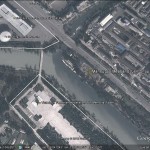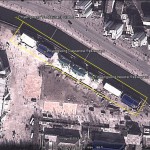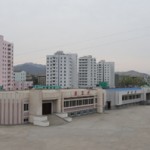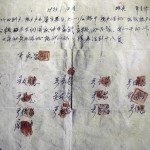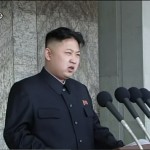According to the Daily NK:
This year, the North Korean authorities are once again emphasizing the need to strive for greater food production as the farming season begins, launching the annual 40-day total farm mobilization period with the words “Let’s mobilize the whole party, the whole nation and all the people to reach the grain production targets.”
Rodong Shinmun published editorials on the subject on both the 11th and again on the 12th, reflecting the emphasis being optimistically placed on solving food security issues in 2012. Kim Jong Eun also emphasized the same in his major statements on the 6th and 27th of last month, understandably so given that farm productivity has the potential to play such a decisive role in stabilizing the first full winter of his rule.
Inside sources say that the mobilization atmosphere is unusually intense this year in farming villages. Cadres and people alike are feeling the strain of Kim Jong Eun’s first season in charge, with the assumption being that this year could see severe punishments meted out for any wrongdoing.
A South Hamkyung Province explained to Daily NK yesterday, “The whole nation is out there supporting the farms, including enterprises affiliated with state agencies, upper middle school and college students and military bases. People are not allowed to be at home or in the streets. Restaurants are not open either. Everybody is out on the farms. It’s just like martial law, really brutal.”
“5 or 6 safety agents have set up a desk in the street and are stopping people passing by, confiscating their identifications and the bikes they are on and sending them to nearby farms,” he went on. “People can only pass if they have a confirmation slip from a cooperative farm management committee.”
“The markets are only allowed to open from 5PM to 8PM after farm work is done for the day, so excluding preparation and organizing time, there is only an hour or so that the market is open. Buyers and sellers are all super busy,” he added.
During the 40-day total mobilization period, school classes are halted and students sent off to farms for forty days carrying their food and bedding. Laborers, workers in administrative organs and members of the Union of Democratic Women all commute from home to local collective farms until the planting and seeding is done.
North Korea has had the policy in place since 2006. Prior to that, students still had to farm every day, but full-time workers and members of the Union of Democratic Women went out just twice or three times a month.
In 2006, five provincial Party cadres from North Hamkyung Province were caught enjoying a spa during the period. They were summarily kicked out of the Party and sent into internal exile with their families.
“Until last year we were able to get confirmation of attendance from farm management committee cadres by giving a bribe, but with this year being the first under Kim Jong Eun, those tricks are unlikely to work,” the source concluded.
Read full story here:
Farming Regions in State of Tension
Daily NK
Choi Song Min
2012-5-15

